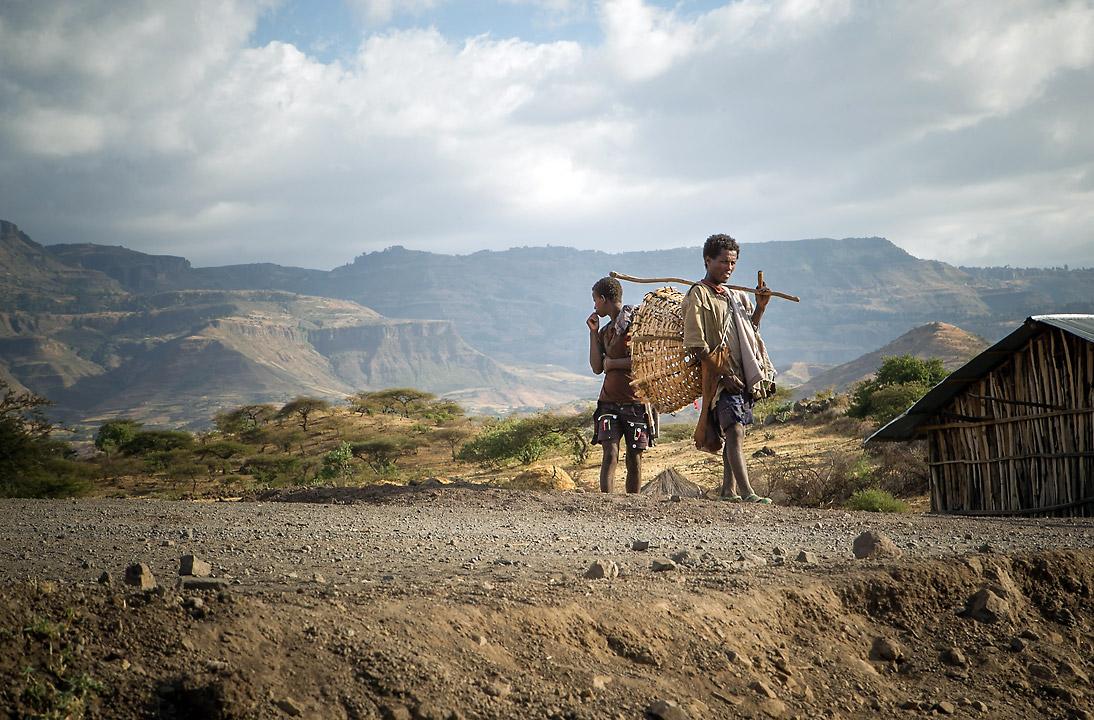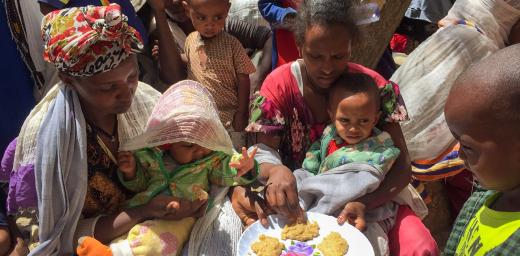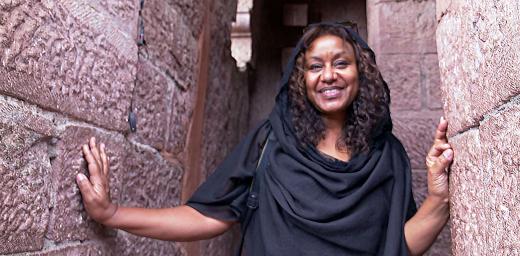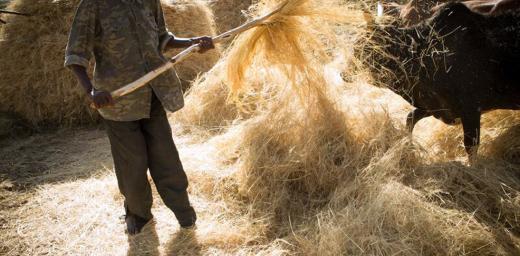The Road to Mote

Once again, Ethiopians have to deal with a drought as the north of the country is heavily affected by El Nino. Photo: Hannah Mornement
In 1984, Adrienne Mornement was one of the nurses deployed with the LWF in the Ethiopian village of Mote during one of the worst famines the country had ever seen. Thirty years later her daughter, Hannah Mornement, travelled to Mote to see the progress made since that devastating famine. She talked to former beneficiaries and those taught how to look after themselves in the event of future extreme weather, such as the El Nino drought gripping the country now.
It was 1984. I was 14 and along with my sister, mum and dad watched in horror and disbelief at the now iconic report by Michael Buerk of the BBC from Ethiopia. His potent delivery and wording such as “a biblical famine” and “the closest thing to hell on earth” struck a chord with all of us, but especially so with my mother. She turned to us and said, “Would you mind, but I’d like to go and help”. Her great-aunt and uncle had been Baptist missionaries for over 40 years in Africa and, when my mother finished her nursing training at Addenbrookes Hospital in Cambridge, United Kingdom, she had decided that she too would go and work in Africa. Marriage and children put this thought on hold for the next 20 years until 1985. Her children now grown up, 15 and 17, she set about finding an NGO (non-governmental organization) which was recruiting nurses for Ethiopia, and was hired by the Lutheran World Federation.
A few months later and she was gone. She took leave from her career as a staff nurse of the Intensive Care Unit at Epsom District Hospital, UK, and swapped her urban daily commute for the green hills and muddy roads of Africa. It was here, 30 years ago in a little village called Mote, that she started to write a diary for the first time. Frank and, at times, starkly matter of fact, many questions emerge which are more apparent to the reader than the author. It was in these diary entries that we are given an insight into the true horror of the famine. For the six months my mother was deployed it rained heavily for almost 90% of the time, making travel to and from the feeding stations an almost impossible task - not to mention the struggle of the beneficiaries.
12 August 1985 - Nekemte
It was a tortuous, dangerous drive. The car was flung from side to side with mud covering the truck completely within a few seconds. I used every ounce of skill I have learnt from this road, negotiating the deepest swamps yet - but eventually, after a mighty leap into the air we landed in a deep swampy mess and both the front axle and differential were covered - buried in the mud - as were most of the tyres…
Denboba and I stripped, we used my underskirt as a towel and took off our shoes. I tied my dress around my waist, and then we pulled and pushed, dragging stones from the nearby area to lay down to form some sort of rocky base for the wheels. Denboba crawled in this foul mud under the car trying to dig out the differential. We drove backwards, forwards and threw the steering wheel from side to side, we laughed, washed our hands in the muddy water, drying them on my petticoat, then nearly cried when we failed again and again.”
But this isn’t a story just about petticoats and mud.
16 July 1985 - Mote
If there are going to be scenes etched forever in one’s mind, if the heart and soul are to seared and scarred, if one is to break and cry out in despair with grief and frustration, if one was to be faced with a feeling of total in adequacy and impotency, then today was surely that day. It had rained all night and continued throughout the day making the ground slippery with deep mud. By 8.00 hours many, many people were sitting on the ground together with their children wearing, in most instances, only their mud stained beige shammas wrapped around their skeletons that reminded me of the shroud of death.
Some people did die today. Some people lay motionless on the soaking wet ground and only when a stethoscope was placed over their heart did I know that they were still just alive. Some children were fitting as they lay either on the grass or in their mothers limp arms. Some parcels of bones were wrapped in tighter skin than others, most children seen, examined, weighed and measured were only 50% of their height for weight. No-one pushed, there was no disorder. The mothers and fathers divided and made a path clear for us. As we came and went from the registration hut they fell down and clutched our skirts and feet weeping, begging, pleading and dying.
It was a torture to be part of such horror knowing that one could not improve the now desperate struggle for survival. Mothers with outstretched arms raised in pain were praying to heaven for help. Cries of “help me”, echoed in the chaos of my mind. Never have I seen anything, nothing like this before. Why are these people punished so? May God and humanity help these people of Ethiopia.”
Thirty years later I travelled back to Mote, to start my documentary and see firsthand the progress made since that devastating famine. I was able to find and talk to those who passed through the feeding program and those who worked alongside my mother and were taught how to look after themselves the next time they were struck by famine.
This month I will return to Mote with her diary.
The Road to Mote is about a journey that started in 1985. A journey that left questions unanswered. Did we really 'feed the world'? What legacy did we leave behind? What impact did a staff nurse from Ashtead have on those she helped?
I aim to weave in and out of the past 30 years, taking a look at the way humanitarian aid has produced sustainable change in a village that became such a large part of my mother's life, and remaining conscious that many of the mothers, not much older than I was at the time, were facing conditions unthinkable to me.
Hannah Mornement’s mother Adrienne worked with LWF Ethiopia from 1984-1985.





